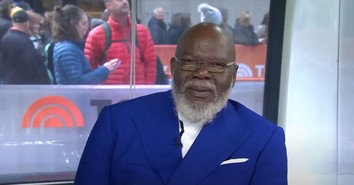Understanding Israel Part 1

Editor’s Note: This two-part blog series was originally released in May 2021. Due to the conflict in Israel happening right now, we felt it was important to share these blogs with you again. For a deeper dive into this conversation, we encourage you to listen to the most recent Church & Culture Podcast CCP80: On the War in Israel.
**********
It seems as if the nation of Israel is always in the news, but with the recent conflict with Hamas resulting in the worst violence in nearly a decade they are front and center as never before.
Many Christians don’t know what to think about Israel. Few have more than a superficial understanding of the Israel of the Old Testament, and how that nation and people factored into things. After that, they really don’t know what became of it.
Things become even less clear with modern-day Israel. Is it the same nation, the same chosen people, the same “Promised Land” established by God? It gets even fuzzier when pressed on how Israel and the Jewish people factor into all things end times.
Obviously, delving into all things Israel and the Jewish people is too much for one blog. Too much for even a single book. But what can be succinctly put forward are two things: understanding Israel as a nation in the Old Testament, and then understanding Israel as a modern-day nation-state. Both are foundational for any and all subsequent explorations.
Let’s begin with the Israel of old. The Jewish people began with the calling of Abram, to be sure, but as a nation, we look to the time of Moses.
Moses led the people of Israel out of Egyptian bondage and toward the Promised Land. He then handed the leadership baton off to a man named Joshua, who led the people to possess the land.
They were then ruled by various judges until the time they appointed their first king, a man by the name of Saul, who was followed by one of the greatest leaders and kings in all of human history, King David. David started off winning a fight against the giant Goliath and ended up establishing Israel as the premiere force in that part of the world.
David had a son named Solomon—a man who made his own mark through his incredible God-given wisdom. He is known as the wisest man to have ever lived. Through that wisdom, he built off of his father David’s success and led Israel to such military and economic prominence that kings and queens came from around the world just to marvel and learn. The reigns of David and then Solomon constituted what can only be called a golden age for Israel.
When Solomon died his son, Rehoboam (David’s grandson), came to the throne, standing in the line of kings ready to lead Israel forward to even greater heights. And then, in a single event, everything was lost.
As the people prepared to install him as king, they made but one request. Due to the rapid expansion of the nation, the people had been heavily taxed and large numbers of workers had been conscripted for labor. Could Rehoboam, as the new king, inaugurate his reign through an act of kindness, compassion and sensitivity and consider lowering taxes and reducing the amount of forced labor—even if only for a season?
It was an incredible opportunity to curry favor and win loyalty. Yet he refused. To paraphrase his response: “You want lower taxes and you want less work, do you? Then take this: I’m going to raise taxes and work you even harder!”
As a result, civil war broke out and divided the kingdom. Ten of the 12 tribes of Israel revolted and eventually formed the Northern Kingdom of Israel; only two of the 12 tribes stayed loyal to Rehoboam, forming the Southern Kingdom of Judah.
This led to ever-increasing levels of political, cultural and spiritual breakdown in both the North and the South, ushering in the prophetic era where God sent prophet after prophet to call the people back to political, cultural and spiritual sanity. Unfortunately, the breakdown was so complete that, by and large, the words of the prophets fell on deaf ears. This led to prophetic calls of repentance becoming prophetic declarations of doom.
A 350-year decline was set in motion, culminating in exile for both the Northern and Southern kingdoms. The North fell to the Assyrians in 722 B.C., and the South to the Babylonians in 586 B.C., with the Temple and the holy city of Jerusalem left sacked.
The Northern Kingdom was lost forever, and only a remnant from the Southern Kingdom was able to return from their exile in Babylon to the Promised Land to reestablish the Jewish homeland and wait for the Messiah.
And that, in effect, ends the history of the Old Testament.
The story of the Bible does not pick up again until the time of the coming of that Messiah – Jesus – in the New Testament. The Israel that He inhabited was populated by the remnant from the Southern Kingdom allowed to return from Babylon. By this time, the area was ruled by Rome.
That is a précis of the socio-political story of the nation of Israel in regard to the Bible. The story of Israel today is somewhat different, and will be the subject of my next blog.
James Emery White
About the Author
James Emery White is the founding and senior pastor of Mecklenburg Community Church in Charlotte, NC, and a former professor of theology and culture at Gordon-Conwell Theological Seminary, where he also served as their fourth president. His latest book, Hybrid Church: Rethinking the Church for a Post-Christian Digital Age, is now available on Amazon or from your favorite bookseller. To enjoy a free subscription to the Church & Culture blog, visit churchandculture.org where you can view past blogs in our archive, read the latest church and culture news from around the world, and listen to the Church & Culture Podcast. Follow Dr. White on X, Facebook and Instagram at @JamesEmeryWhite.
The views expressed in this commentary do not necessarily reflect those of CrosswalkHeadlines.
James Emery White is the founding and senior pastor of Mecklenburg Community Church in Charlotte, NC, and a former professor of theology and culture at Gordon-Conwell Theological Seminary, where he also served as their fourth president. His latest book, Hybrid Church: Rethinking the Church for a Post-Christian Digital Age, is now available on Amazon or from your favorite bookseller. To enjoy a free subscription to the Church & Culture blog, visit churchandculture.org where you can view past blogs in our archive, read the latest church and culture news from around the world, and listen to the Church & Culture Podcast. Follow Dr. White on X, Facebook and Instagram at @JamesEmeryWhite.
Originally published October 16, 2023.





